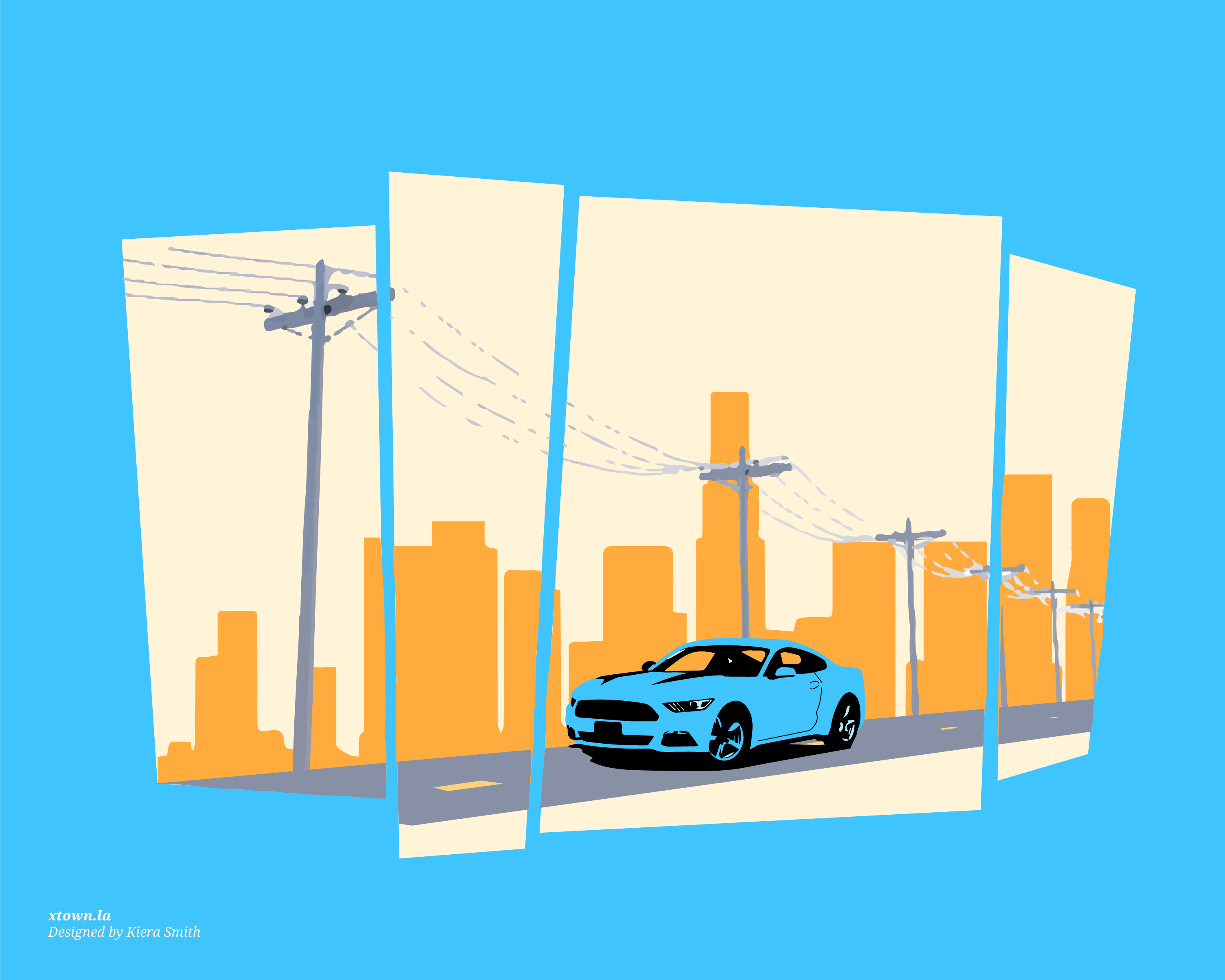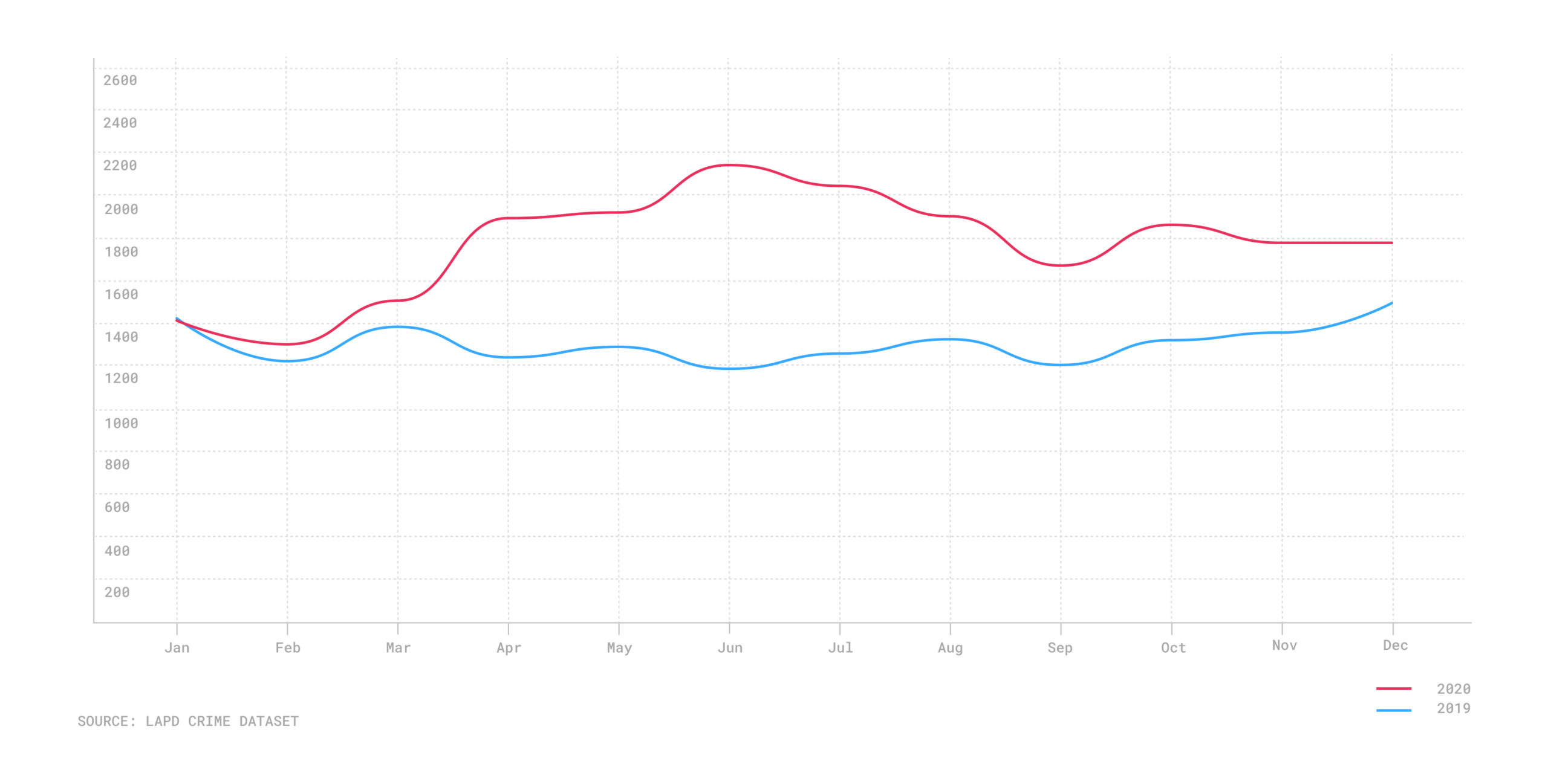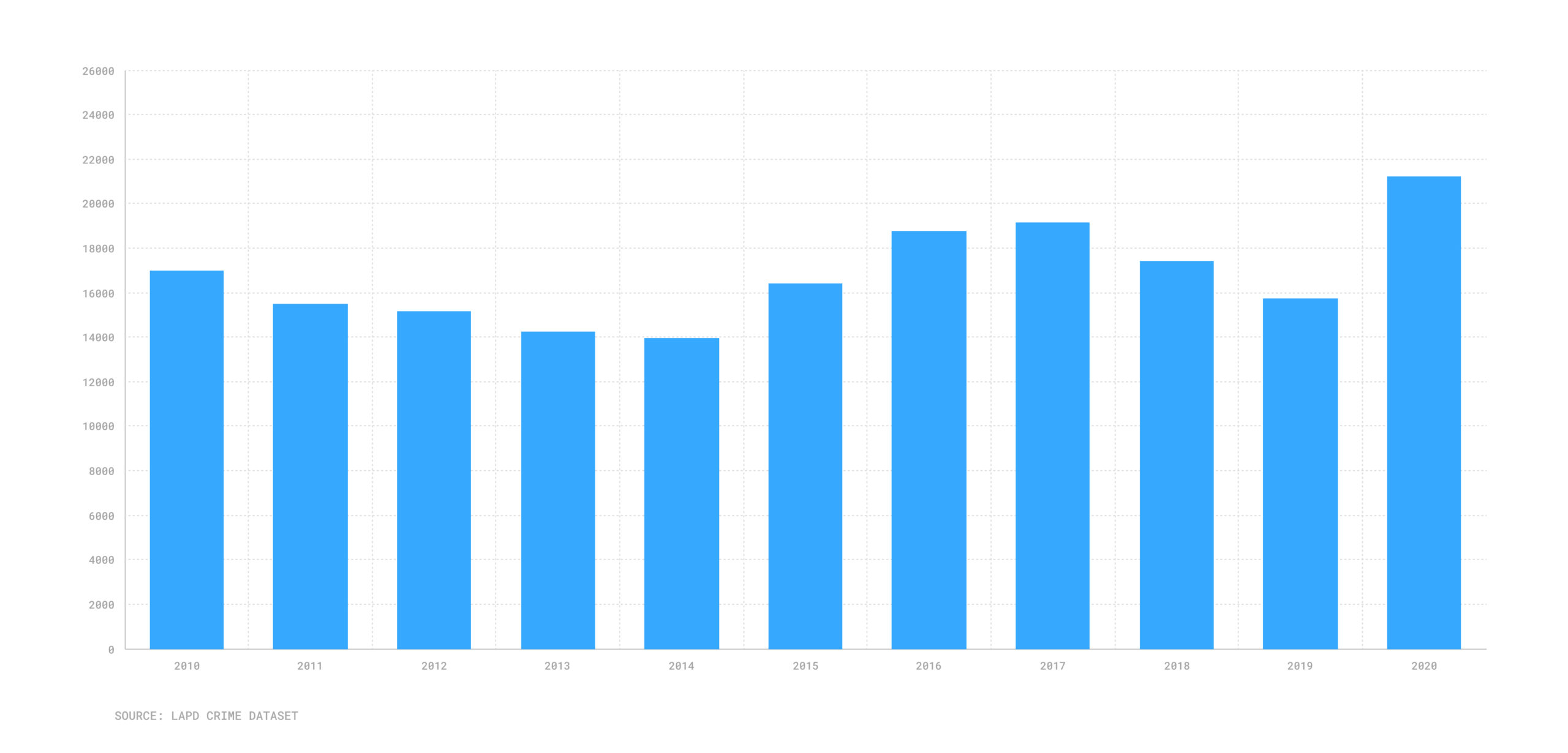Pandemic’s other toll: Record number of stolen cars

In the days immediately after Los Angeles Mayor Eric Garcetti issued the stay-at-home order last March, cars began disappearing from streets at a quickening pace.
In March, the number of vehicle thefts rose by 9% from a year earlier, to 1,504, according to Los Angeles Police Department data. By June, there were 2,142 stolen car reports, an 81% increase from the same period in 2019 and the highest monthly total the city had seen in over a decade.
By year’s end, 21,255 vehicles had been reported stolen in the City of Los Angeles, a 35% jump from 2019, also marking the highest record in over a decade.
Vehicle theft in Los Angeles by month, 2019 vs. 2020

The pandemic created unprecedented incentives for car thefts, including relaxed parking restrictions that allowed extended periods for streetside parking, and the elimination of bail requirements for low-level felonies and misdemeanors to prevent the spread of COVID-19 in jails.
Some thieves appeared to have used stolen vehicles for transportation, as cars were recovered only blocks away. Other causes, including carelessness with key fobs, also contributed to the soaring car theft incidents, The New York Times reported.
Boyle Heights, Downtown and Van Nuys were the top three neighborhoods for car thefts in 2020, with 742, 705 and 617 incidents, respectively. This was the eighth consecutive year Boyle Heights experienced the most car thefts.
Vehicle theft in Los Angeles, 2010-2020

Tom Lehmann, 35, who lives in the Studio City neighborhood, said his 2000 Toyota Camry was stolen on the street around 1 a.m. on July 1. It was recovered about three weeks later in Altadena and sent to a tow lot, which charged him more than $300 to get the car out. “It was extremely frustrating,” Lehmann said.
“My car was pretty much ruined after that and I ended up having to sell it for parts,” he added. “It wouldn’t start unless I charged it with jumper cables, so I didn’t really look into it because I knew the repair would be more than the car was worth.”
The problem extended across the county. The Los Angeles Sheriff’s Department reported a 29% increase in stolen vehicles last year, to 12,724 thefts.
John Rodarte, 37, a Diamond Bar resident whose 1999 Honda CR-V went missing on the street after he dropped off gifts on Christmas, was told by the sheriff’s deputy it was likely a joy-riding theft. The Honda was found abandoned on Jan. 6 at a hamburger restaurant in Pomona with gang insignia on one of the back windows, Rodarte said, adding that everything he had in the car had been stolen, its battery taken, gas cap removed and windows no longer operational.
“Curiously enough, when the car was taken in front of my home, there were no signs of a break in at all,” Rodarte said, “but when I got to the car at the burger joint, the passenger side window had been busted out and broken glass was all over the car and the ground outside the car. It appears that somebody tried to steal it after the initial thieves abandoned it.”
Rodarte said he had paid $2,600 for repair and would need to pay more. “I’m just finding more and more stuff that has to be replaced or fixed that I’m almost wishing they didn’t find the car.”
It’s still too early to tell whether the number of stolen vehicles will decrease as the pandemic recedes. Since the city began enforcing its parking restrictions again in October, the pace has slowed somewhat. October saw a 41% increase in stolen cars over last year. But by December, the increase had been cut by more than half, to 19%
How we did it: We examined publicly available LAPD data on reported crimes in the City of Los Angeles, and reported crimes from the Los Angeles Sheriff’s Department. For neighborhood boundaries, we rely on the borders defined by the Los Angeles Times. Learn more about our data here.
LAPD data only reflects crimes that are reported to the department, not how many crimes actually occurred. In making our calculations, we rely on the data the LAPD makes publicly available.
The LAPD periodically updates past crime reports with new information, leading the department to recategorize past reports. Additionally, revised reports do not always automatically become part of the public database. But, we will keep monitoring hate crimes in the City of Los Angeles.
Want to know how your neighborhood fares? Or simply just interested in our data? Email us at askus@xtown.la.






